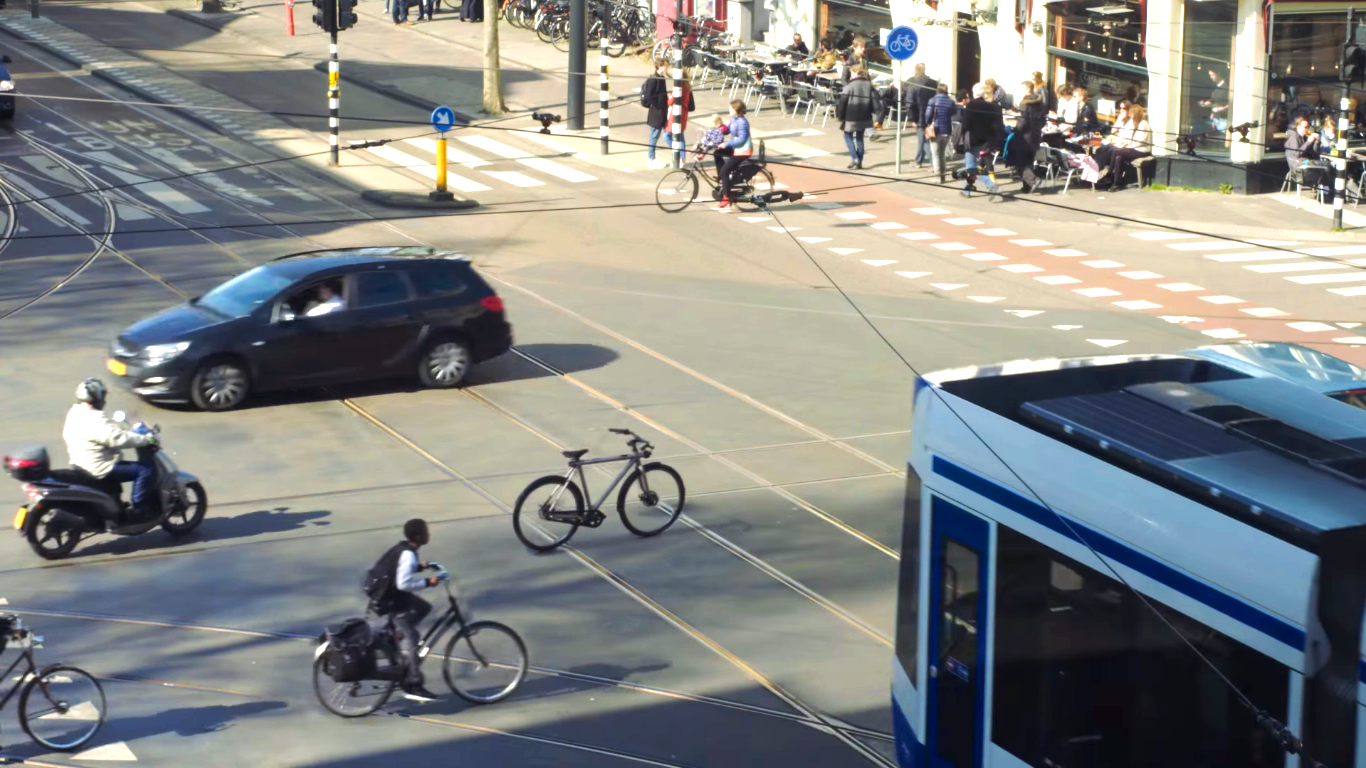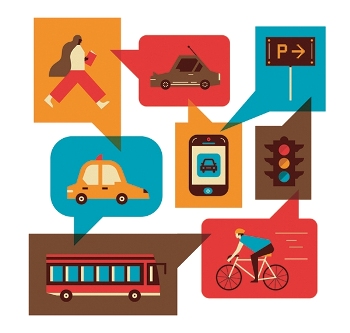
Smarter Cycling Series: What’s the future for the bike industry in the world of driverless cars?
As part of our work to help cycling and the bike industry into the world of smart, connected and shared mobility we are working with visionaries and leaders who are setting the tone in this new mobility. We are going to be inviting some of them to share their thoughts and visions with ECF.com in the coming months.
To start the series we invited Ross Douglas, CEO of Autonomy, the next generation mobility event which launches in Paris in October to give us his insight from working with companies from right across mobility and transformation. Autonomy is a member of the ECF Cycling Industry Club and ECF will be presenting Smarter Cycling at the event.
If you would like to contribute a guest post please contact Niccolo' Panozzo, Smarter Cycling Project Assistant
Driverless cars are coming – what does this mean for bicycles?
By Ross Douglas
In 2011 a business trip to Copenhagen got me interested in urban mobility. I arrived a week after a trip to Lagos and the contrast could not have starker. In Lagos I managed a maximum of three meetings a day. I paid a driver $100-a-day to fight through traffic, barely getting out of first gear, while I choked on diesel fumes. In Copenhagen I paid $8-a-day to cruise around on a bike, breezing to seven meetings. And it felt great to feel the fresh ocean air on my skin.
Copenhagen got me excited about how cycling could change cities. So I left South Africa and moved to Paris to start Autonomy, an event focused on next generation urban mobility. What I hadn’t foreseen was the rise of driverless cars, or autonomous vehicles (AVs) as they’re sometimes called.
When I started Autonomy in 2013 AVs were getting little press; few people believed they’d live to see them become reality. Things have changed. By some estimates urban fleets will incorporate AVs within five years; and every major car company now has a driverless car project.
While the car industry fronts up to serious disruption, not much has changed in the bicycle industry. Google got a laugh with their April Fools’ joke featuring an autonomous VanMoof bike, because we don’t expect much innovation from bicycles.
The biggest obstacle to cycling in a city is safety
 As a bicycle enthusiast I’m interested in what impact AVs will have on cycling. By making streets safer they should encourage us to cycle more. But, if they’re as efficient as everyone expects they will be, then AVs may reduce the need to cycle in the first place.
As a bicycle enthusiast I’m interested in what impact AVs will have on cycling. By making streets safer they should encourage us to cycle more. But, if they’re as efficient as everyone expects they will be, then AVs may reduce the need to cycle in the first place.
As part of the promotion of our urban mobility fair (www.autonomy.paris) we commissioned France’s leading university in the social sciences, Science Po, to research Paris mobility patterns. The results showed that young urbanites want safe, flexible, and affordable mobility: 56% of respondents want to see more bicycles on the street, but only 10% cycle every day, and some 40% said they would only consider commuting by bicycle if safety was improved. Clearly safety is a major obstacle to urban cycling. The smart money says driverless cars will be safe, practical, cheap, non-polluting, and on our streets within a decade. What’s that’s going to do to cycling patterns?
Driverless cars will make streets safe, but they might deter us from cycling
Safe streets and clean air is good news for cyclists. So is advanced sensor technology and a networked traffic system. It’s possible that in the future all mobility devices will be connected, eliminating traffic accidents almost completely.
But, solving the safety issue won’t necessarily put more cyclists on the streets. If you thought Uber was easy, just imagine the convenience of a driverless, electric, urban buggy whipping you around the city, slicing through intersections managed by servers. Electric AVs, charged by renewable energy, would make them nearly as green as bicycles. If technology solves the traffic issue and the carbon issue, then why cycle? With the likes of Apple, Tesla, Google and Nissan chasing the AV dream, they’ll probably be sexy too.
The bicycle industry should rethink their urban market strategy lest they lose the battle for urban commuters.
The e-bike industry needs to be part of the smart mobility revolution

A century ago the mass-produced motor vehicle destroyed the push-bike industry. Today, bicycle manufacturers must act fast to avoid a similar fate from all the new forms of connected electric mobility devices appearing on the market. For a start they need to produce smart, as in connected, bikes on mass. Look at the press and interest Levis got for Project Jacquard, their Google collaboration on a connected jacket. Smart bikes will open up a host of revenue opportunities for entrepreneurs wanting to create floating bike-share schemes in cities - much like CityScoot, which is taking Paris by storm.
Connected bikes can be easily integrated into the many new mobility platforms being created by major transport players, such as SNCF. A connected bike offers the perfect link from home to station - but if you can’t see it on your smartphone it may as well not exist.
Also, the bicycle industry needs to be more effective at leveraging its newfound political support; they need to continue to lobby for bike-friendly infrastructure like lanes and bike boxes. But, to win the lobby game the bicycle industry must invest in developing decent data, which not only furthers the interests of the industry, but helps cities create the right cycle infrastructure. If the bike industry collectively works to create maximum city cycle data, they will have the most powerful lobbying tool and give cities the ability to make the right infrastructure calls.
Finally, the bike industry will need to position themselves strongly amongst the increasing urban population in order to retain their share of this market. This burgeoning demographic live on smartphones and want to use mobility devices often without necessarily the downside of owning them. Only connected mobility solutions can offer this freedom.
If you want to read more about Smarter Cycling, click here
News category:
Network/Project Involved:
Contact the author
Recent news!
Upcoming events
Contact Us
Avenue des Arts, 7-8
Postal address: Rue de la Charité, 22
1210 Brussels, Belgium










